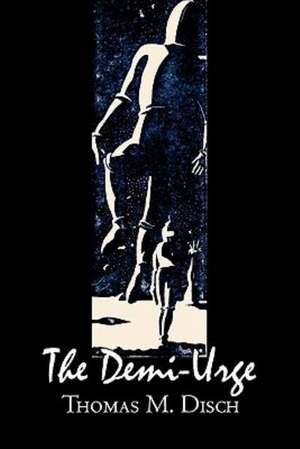The Demi-Urge by Thomas M. Disch, Science Fiction, Fantasy, Adventure
Autor Thomas M. Dischen Limba Engleză Paperback – mai 2011
Preț: 55.52 lei
Nou
Puncte Express: 83
Preț estimativ în valută:
10.62€ • 11.09$ • 8.77£
10.62€ • 11.09$ • 8.77£
Carte tipărită la comandă
Livrare economică 15-29 aprilie
Preluare comenzi: 021 569.72.76
Specificații
ISBN-13: 9781606644447
ISBN-10: 1606644440
Pagini: 18
Dimensiuni: 152 x 229 x 1 mm
Greutate: 0.04 kg
Editura: Alan Rodgers Books LLC
ISBN-10: 1606644440
Pagini: 18
Dimensiuni: 152 x 229 x 1 mm
Greutate: 0.04 kg
Editura: Alan Rodgers Books LLC
Notă biografică
Thomas Michael Disch (1940 - 2008) was an American science fiction author and poet. He won the Hugo Award for Best Related Book - previously called "Best Non-Fiction Book" - in 1999 and he had two other Hugo nominations and nine Nebula Award nominations to his credit, plus one win of the John W. Campbell Memorial Award, a Rhysling Award and two Seiun Awards, among others. In the 1960s, his work began appearing in science-fiction magazines. His critically acclaimed science fiction novels, The Genocides, Camp Concentration, 334 and On Wings of Song are major contributions to the New Wave science fiction movement. In 1996, his book The Castle of Indolence: On Poetry, Poets and Poetasters was nominated for the National Book Critics Circle Award and in 1999, Disch won the Nonfiction Hugo for The Dreams Our Stuff Is Made Of, a meditation on the impact of science fiction on our culture, as well as the Michael Braude Award for Light Verse. Among his other nonfiction work, he wrote theatre and opera criticism for The New York Times, The Nation and other periodicals. He also published several volumes of poetry as Tom Disch.
